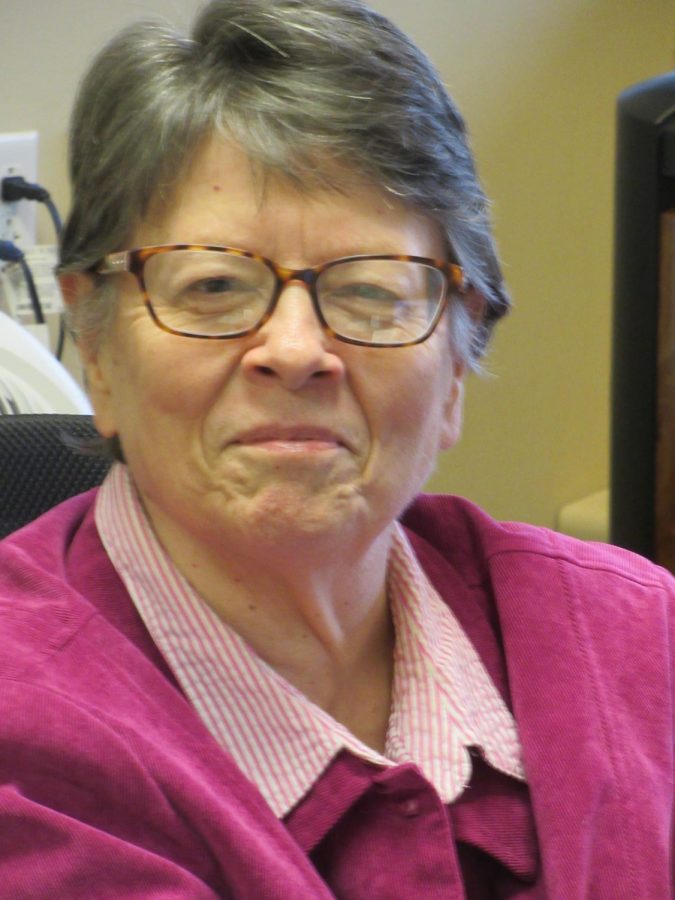Falling short of optimal enrollment, TRiO continues outreach efforts
Karen Madden
TRiO on NVU-Johnson is a branch of academic support services that supports students who have overcome socio-economic hurdles to attend college. They are funded by federal grants to assist students in acclimating to college life.
“We think of ourselves sort of as traffic cops,” says Shane Stacey, math and science specialist at Academic Support Services. “Basically, the student comes to us, we’re going to try to direct them to the resource that best works for them if we don’t have the answer off the top.”
Some of TRiO’s services include help with financial aid, composing professional emails, internship searches, and other professional development. “While there are departments that are specifically geared toward these things, we sort of do a little bit of everything,” continues Stacey. “If we don’t have the answer, we will find the answer or find the person.”
In order for NVU-Johnson to retain their TRiO funding, they must reapply every five years. However, Johnson’s TRiO enrollment has not been growing as quickly as it has in previous years. TRiO students are graduating faster than applications are coming in.
“I would say every year we’re concerned,” says Karen Madden, director of academic support services. “It just is so important that we reach the number. Meeting the numbers helps us get a new grant. We’ve met them in the past, so we know we will again. We’re just a little lower than we would like to be at this point.”
Despite the dropping numbers, the Academic Support office remains optimistic. “We have to make some changes institutionally to make sure we hit our numbers,” says Stacey. “We basically have to ensure somehow that every incoming student is filling out the TRiO application.”
Every effort has been made by Academic Support Services, including offering digital applications to those waiting in line at COVID testing tents and tabling at most events on campus.
“We’re doing lots of activities and combining with other activities on campus,” says Madden. “However, other activities are not full of very many people. What we haven’t done in the past few years, because so many of the classes have been remote, is visit freshman classes. We certainly do that in the fall.” Previously, first-year classes were a gold mine for students to fill out TRiO applications.
The overall decreasing enrollment of NVU-Johnson does not assist in the similar trend of TRiO students. “We’re always open to new ideas from anybody,” says Madden. “We just really want faculty and staff to support the students, if they think someone will be eligible to send them to us.”
“We’re always optimistic,” continues Madden. “The number changes every day. Our goal is recruiting, that’s really what we focus on, not the number so much.” After all, TRiO is all about students receiving the help they need. Each employee is in it for the students.
“We still have to be mindful of where we’re at,” says Stacey, “and strive to get people to understand what TRiO is, to get everyone to apply and to realize that there’s only positives, whether that’s financial or otherwise. For people who have under 60 credits, we have money to give away.” There are many more benefits to being a member of TRiO than just the money, as well. The assistance provided by the Academic Support Services can make college easier and more valuable to a student.
“We know that the percentage of students, according to the last grant we wrote, on campus who were eligible is over 70%,” says Madden. “If we can get all of them, we’ll be fine, and new students come in all the time.” All that is left for the office to do is get the word out there and circulate as many applications as possible.
“You could ask almost any student who comes in here and uses our services that this was really valuable to them,” says Madden.

First year student from Orlando, FL.
Working on her second bachelors.
Love poetry, anime, and her dog (mostly her dog).
Dreams of living in a van.



